


"Car je ne veux pas, frères, que vous ignoriez ce mystère, de peur que vous ne vous preniez pour des sages: l'endurcissement d'une partie d'Israël durera jusqu'à ce que soit entré l'ensemble des païens. Et ainsi tout Israël sera sauvé... Par rapport à l'Évangile, les voilà ennemis, et c'est en votre faveur; mais du point de vue de l'élection, ils sont aimés, et c'est à cause des pères. Car les dons et l'appel de Dieu sont irrévocables." (Rom 11:25)
Articles sur les relations entre l'Église et le peuple juif et le role d'Israël dans le plan divin du salut.
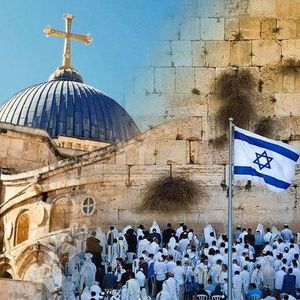 Dr. André Villeneuve addresses the problem of Catholic anti-Zionism—including 15 fallacies upon which it is based—and its underlying cause: the enduring influence of Catholic supersessionism.
Dr. André Villeneuve addresses the problem of Catholic anti-Zionism—including 15 fallacies upon which it is based—and its underlying cause: the enduring influence of Catholic supersessionism.
Lire la suite : Catholic Anti-Zionism: Straw Men, Dead Horses, and Other Fallacies
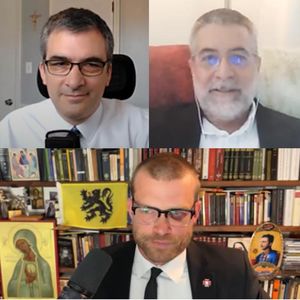 Dr. André Villeneuve and Dr. Matthew Tsakanikas debate the question of Catholic Zionism in light of Sacred Scripture, Catholic Tradition, and the teachings of the Magisterium.
Dr. André Villeneuve and Dr. Matthew Tsakanikas debate the question of Catholic Zionism in light of Sacred Scripture, Catholic Tradition, and the teachings of the Magisterium.
Lire la suite : Zionism Debate: Dr. André Villeneuve vs. Dr. Matthew Tsakanikas
 Since the October 7 Hamas attack against Israel, a troubling surge in global antisemitism has emerged—including within Catholic circles. A case in point is LifeSiteNews, given its track record of publishing anti-Israel narratives. Does LifeSiteNews have an antisemitism problem? Let's take a closer look.
Since the October 7 Hamas attack against Israel, a troubling surge in global antisemitism has emerged—including within Catholic circles. A case in point is LifeSiteNews, given its track record of publishing anti-Israel narratives. Does LifeSiteNews have an antisemitism problem? Let's take a closer look.
Lire la suite : Catholic Antisemitism: The Case of LifeSiteNews
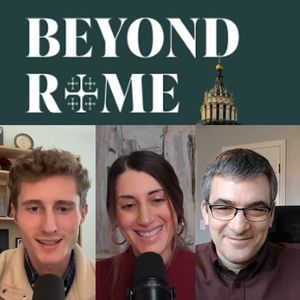 On the Beyond Rome podcast, Simone Rizkallah and James O’Reilly are joined by Andre Villeneuve to discuss how Catholics should navigate between the two heresies of Supersessionism (or Replacement Theology) and Dual Covenant Theology.
On the Beyond Rome podcast, Simone Rizkallah and James O’Reilly are joined by Andre Villeneuve to discuss how Catholics should navigate between the two heresies of Supersessionism (or Replacement Theology) and Dual Covenant Theology.
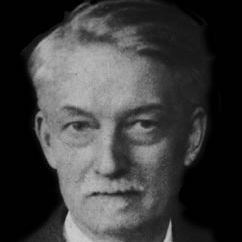 The central fact, which has its deepest meaning for the philosophy of history and for human destiny—and which no one seems to take into account—is that the passion of Israel today is taking on more and more distinctly the form of the Cross.
The central fact, which has its deepest meaning for the philosophy of history and for human destiny—and which no one seems to take into account—is that the passion of Israel today is taking on more and more distinctly the form of the Cross.
 The horrific Hamas attacks on Israel on October 7, 2023 and the ensuing war in Gaza have raised many questions among Catholics: Should they support Israel? Does modern Israel still benefit from any kind of special status today as God’s chosen nation, or should we view it as a purely secular political entity like every other state? This article will consider these questions and seek to provide some basic theological and catechetical principles and guidelines for Catholics concerning the “mystery of Israel.”
The horrific Hamas attacks on Israel on October 7, 2023 and the ensuing war in Gaza have raised many questions among Catholics: Should they support Israel? Does modern Israel still benefit from any kind of special status today as God’s chosen nation, or should we view it as a purely secular political entity like every other state? This article will consider these questions and seek to provide some basic theological and catechetical principles and guidelines for Catholics concerning the “mystery of Israel.”
Lire la suite : Why Israel Matters: The Biblical Roots of Catholic Zionism
 Le don inconditionnel de l'élection du peuple juif constitue le fondement théologique du sionisme catholique. De nombreux textes du Nouveau Testament peuvent venir à l'appui de l'idée selon laquelle les catholiques devraient soutenir le sionisme. Jésus lui-même était un juif chrétien sioniste. Les catholiques reconnaissent que le peuple juif a encore un rôle providentiel à jouer et que son retour sur la terre d'Israël pourrait faire partie du plan de rédemption en voie d'accomplissement.
Le don inconditionnel de l'élection du peuple juif constitue le fondement théologique du sionisme catholique. De nombreux textes du Nouveau Testament peuvent venir à l'appui de l'idée selon laquelle les catholiques devraient soutenir le sionisme. Jésus lui-même était un juif chrétien sioniste. Les catholiques reconnaissent que le peuple juif a encore un rôle providentiel à jouer et que son retour sur la terre d'Israël pourrait faire partie du plan de rédemption en voie d'accomplissement.
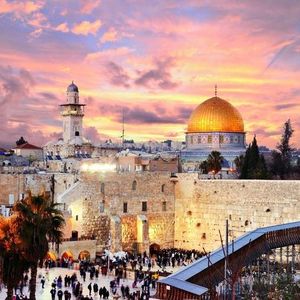 Les détracteurs du sionisme chrétien le rejettent généralement pour l’une ou plusieurs des trois raisons suivantes : (1) Ils disent que celui-ci met en miettes le Nouveau Testament, où l'accent mis par l'Ancien Testament sur un pays particulier est remplacé par la vision du monde dans sa totalité ; (2) Ils pensent que c'est là, la préoccupation exclusive des dispensationalistes prémillénaristes, dont la théologie inclue les Juifs pour promouvoir son propre rôle dans les calendriers présomptueux des événements de la Fin des Temps ; (3) Ils l’estiment plus politique que théologique, comme relevant des idées politiques de la droite américaine et israélienne qui identifient à tort l’État israélien actuel à l’eschaton.
Les détracteurs du sionisme chrétien le rejettent généralement pour l’une ou plusieurs des trois raisons suivantes : (1) Ils disent que celui-ci met en miettes le Nouveau Testament, où l'accent mis par l'Ancien Testament sur un pays particulier est remplacé par la vision du monde dans sa totalité ; (2) Ils pensent que c'est là, la préoccupation exclusive des dispensationalistes prémillénaristes, dont la théologie inclue les Juifs pour promouvoir son propre rôle dans les calendriers présomptueux des événements de la Fin des Temps ; (3) Ils l’estiment plus politique que théologique, comme relevant des idées politiques de la droite américaine et israélienne qui identifient à tort l’État israélien actuel à l’eschaton.
 Gerald McDermott étudie la notion de substitution dans la théologie chrétienne, celle-ci estime que les promesses faites au peuple juif dans l'Ancien Testament, y compris la promesse d’une terre, ont été substituées par l'Église chrétienne. Il soutient que ce point de vue a dominé l'interprétation chrétienne depuis le quatrième siècle, conduisant à la marginalisation dans le Nouveau Testament, des références faites à la terre promise. McDermott démontre que le Nouveau Testament contient des propositions qui contredisent la théologie de la substitution, il soutient que la reconnaissance de la promesse d’une terre conserve une importance capitale dans le Nouveau Testament, car elle demeure essentielle pour comprendre la fidélité de Dieu et l'accomplissement de ses promesses.
Gerald McDermott étudie la notion de substitution dans la théologie chrétienne, celle-ci estime que les promesses faites au peuple juif dans l'Ancien Testament, y compris la promesse d’une terre, ont été substituées par l'Église chrétienne. Il soutient que ce point de vue a dominé l'interprétation chrétienne depuis le quatrième siècle, conduisant à la marginalisation dans le Nouveau Testament, des références faites à la terre promise. McDermott démontre que le Nouveau Testament contient des propositions qui contredisent la théologie de la substitution, il soutient que la reconnaissance de la promesse d’une terre conserve une importance capitale dans le Nouveau Testament, car elle demeure essentielle pour comprendre la fidélité de Dieu et l'accomplissement de ses promesses.
Lire la suite : Pourquoi la terre promise appartient aux israélites
 Dr. André Villeneuve discusses the role of Israel in the age of the Church on Michael Lofton's "Reason and Theology" podcast. Topics include God's covenant with Israel, supersessionism, the idea of the Church as "new Israel", Israel's role in the age of the Church, the modern state of Israel, Zionism, the Israeli-Palestinian conflict, and Israel's role in regard to Jesus' Second Coming.
Dr. André Villeneuve discusses the role of Israel in the age of the Church on Michael Lofton's "Reason and Theology" podcast. Topics include God's covenant with Israel, supersessionism, the idea of the Church as "new Israel", Israel's role in the age of the Church, the modern state of Israel, Zionism, the Israeli-Palestinian conflict, and Israel's role in regard to Jesus' Second Coming.
Lire la suite : Dr. André Villeneuve on Israel and the Church
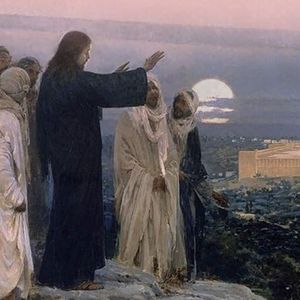
According to Luke-Acts, Jerusalem possesses a unique status not only because "the kingdom of Christ" is "historically anchored" there, but even more because that kingdom will achieve its eschatological consummation within its walls.